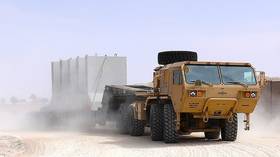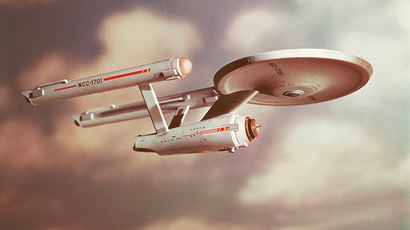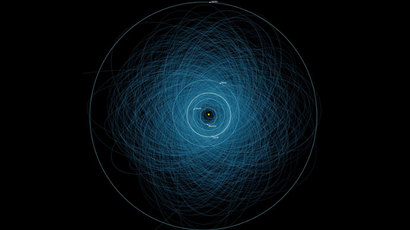Flat-out working: NASA to pay 18 grand for 70-day sleep study
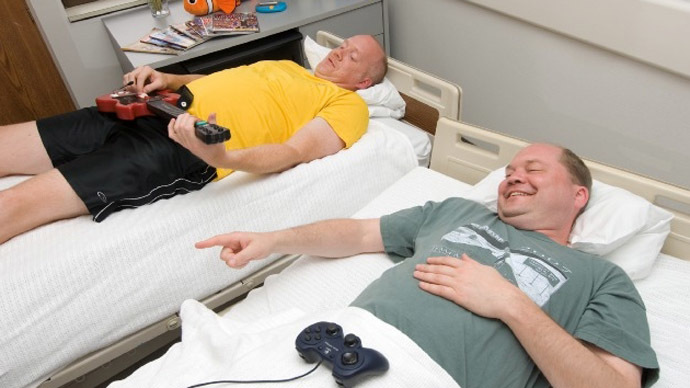
Ever dreamed of helping take one giant step for man from the comfort of your bed? You could be in luck, as NASA is willing to shell out five grand a month to allow a few fortunate loafers to live out their dream… all for the sake of science.
For those brave enough to take on the challenge, $18,000 is up for grabs if you are able to lounge about the Johnson Space Center in Houston, Texas, for 70 days so that scientists can study the effects of microgravity on the human body.
“Watching you will help scientists learn how an astronaut’s body will change in weightlessness during space flight in the future,” the agency said in a statement.
During that time, you will be free to check Facebook, chat with friends, take online courses or even work remotely if possible. The only catch is that you cannot get out of bed during that 24-hour period for any reason, except when researchers conduct a few limited “tests of your bone, muscle, heart and circulatory systems, and nervous systems, as well as your nutritional condition and your ability to fight off infections.”
During those 10 weeks in a tilted bed where you will literally kick back and let your hair down, you’ll experience 16 hours of daylight and eight hours of night.
And for those so inclined (or perhaps not!) to be a bit less slothful, subjects will exercise on specially-designed equipment.
The aptly titled ‘Bed Rest Period’ of the study will be preceded by an ‘Ambulatory Period’. ‘Exercising subjects’ will have 21 days to move around the facility and do ‘normal things’, while ‘non-exercising subjects’ will have 13 days before they hit the sack.
After the Bed-Rest Period has sadly (or thankfully) come to an
end, the 14-day ‘Recovery Period’ will kick off, where subjects
will once again be free to move about the facility.
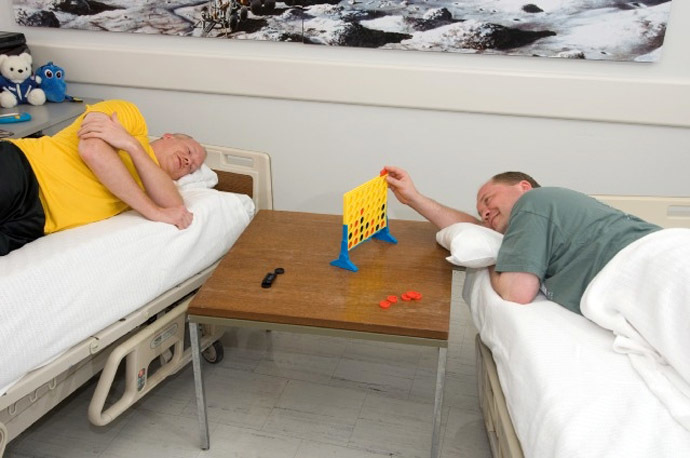
“Because of deconditioning that takes place during bed rest, you will slowly begin normal everyday activity. You will participate in the reconditioning activities that are arranged for you during this time,” NASA says.
However, while it is easy to write off hopeful participants as layabouts, NASA is quick to point out that they are not looking for the chronically idle.
“Couch potatoes is not an accurate description for what we are looking. Subjects need to be very healthy,” NASA’s news chief, Kelly Humphries told Forbes.
Those who are short-listed in the application round are made to undergo a modified Air Force Class Three physical, a fairly strenuous physical exam which could raise a malingerer’s blood pressure.
Candidates will also have to undergo psychological screening which will entail a series of tests and a 90-minute meeting with a shrink.
“We want to make sure we select people who are mentally ready to spend 70 days in bed. Not everyone is comfortable with that. Not every type of person can tolerate an extended time in bed,” Dr. Roni Cromwell, senior scientist on the bed rest study, told the magazine.
“Once they qualify physically and mentally, we do rigorous
physical exercises to test muscle strength and aerobics capacity.
We want people who have the physical and psychological
characteristics of an astronaut. They should be able to do the
kind of activities that astronauts do."
Tyler Ahlstrom, a PhD candidate who participated in a similar study in 2008, told RT about his experience.
Ahlstrom said he received a slightly lower wage, did it for 21 days as opposed to 70, and was not forced to stay in bed the entire time. He also did not have the option of speaking with a non-technician for the duration of the study, and was put on a different schedule (28 hour days) out of the blue.
“My difficulties were not being able to talk to anyone else,
and being confused as to why I was so tired, but all in all it
was a great situation for me. But 70 days! That'd be tough…I
don't know if I could do that, really. It'd be one thing if you
were in there with your friend, but otherwise I'd probably pass.
Ah but all day Final Fantasy…I'd need some time to think about
it…”
So if you are still up to helping conquer the final frontier from
the comfort of your bed, then your dream job might be just one
click away.









